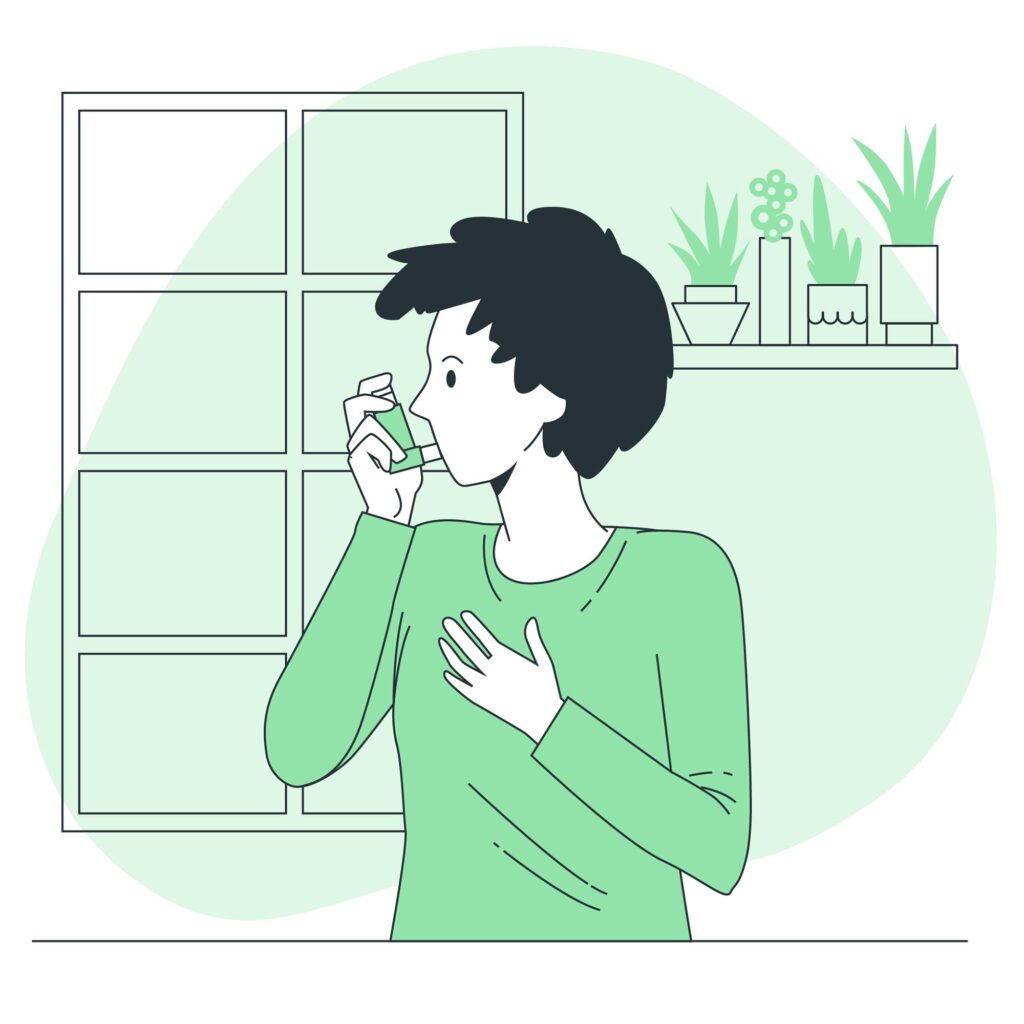Asthma

What is asthma?
Asthma is a condition in which your airways become narrow and swell and may produce extra mucus. This may make breathing challenging and cause coughing, wheezing when you exhale, and shortness of breath.
What are the different types of asthma?
Asthma is the most common chronic condition in children. It can develop at any age, but it is slightly more common in children than in adults.
Asthma can develop at any age, including during adulthood. Adults are more likely than children to have persistent symptoms.
Occupational asthma results from exposure to an allergen or irritant present in the workplace. In the following workplaces, allergens may cause asthma in those with a sensitivity or allergy: bakeries, flour mills, and kitchens, hospitals and other healthcare settings, pet shops, zoos, and laboratories where animals are present, farms and other agricultural settings
Research suggests that around 5–10% of people with asthma have severe asthma.
Signs & Symptoms
Shortness of Breath
Chest Tightness
Wheezing
Dry Cough
Trouble Sleeping
What are the complications that asthma will lead to?
Complications of asthma include:
-
Symptoms that interfere you from sleeping, working, or doing other things
-
Absences from work or school due to asthma attacks
-
Severe asthma attacks requiring hospitalisation and visits to the emergency room
-
Side effects of several drugs used to stabilise severe asthma after prolonged use
What Causes Asthma?
Asthma symptoms and warning signs can emerge in response to a variety of allergens and irritants. Each person has distinct triggers for their asthma, which can include:
- Airborne allergens such as pollen, dust mites, mold spores, pet dander or particles of cockroach waste
- Respiratory infections, such as the common cold
- Physical activity
- Cold air
- Air pollutants and irritants, such as smoke
- Certain medications
- Strong emotions and stress
- Sulfites and preservatives included into some foods and beverages, containing prawns, raisins, processed potatoes, beer, and wine.
- Gastroesophageal reflux disease (GERD), a condition in which stomach acids back up into your throat
How to diagnose asthma?
- Your doctor will inquire about your signs and symptoms as well as any further health issues.
- Spirometry and peak flow measurements of lung function are available for diagnosis.
- To rule out further potential illnesses, like a respiratory infection or chronic obstructive pulmonary disease (COPD), your doctor will do a physical examination.
How to treat asthma?
Your Doctor may recommend drugs to control symptoms.
Asthma medications can be taken in a number of different ways like using a nebulizer, metered-dose inhaler, other inhalers. You can also be prescribed oral drugs by your doctor.
How to prevent Asthma?
To prevent asthma, create a step-by-step strategy with your doctor for managing your illness and preventing asthma attacks.
Follow the following asthma action plan
Identify and avoid asthma triggers
Identify and treat attacks early
Pay attention to increasing quick-relief inhaler use
Take your medication as prescribed
Monitor your breathing
Get vaccinated for influenza and pneumonia
Ask your doctor about the vaccine

